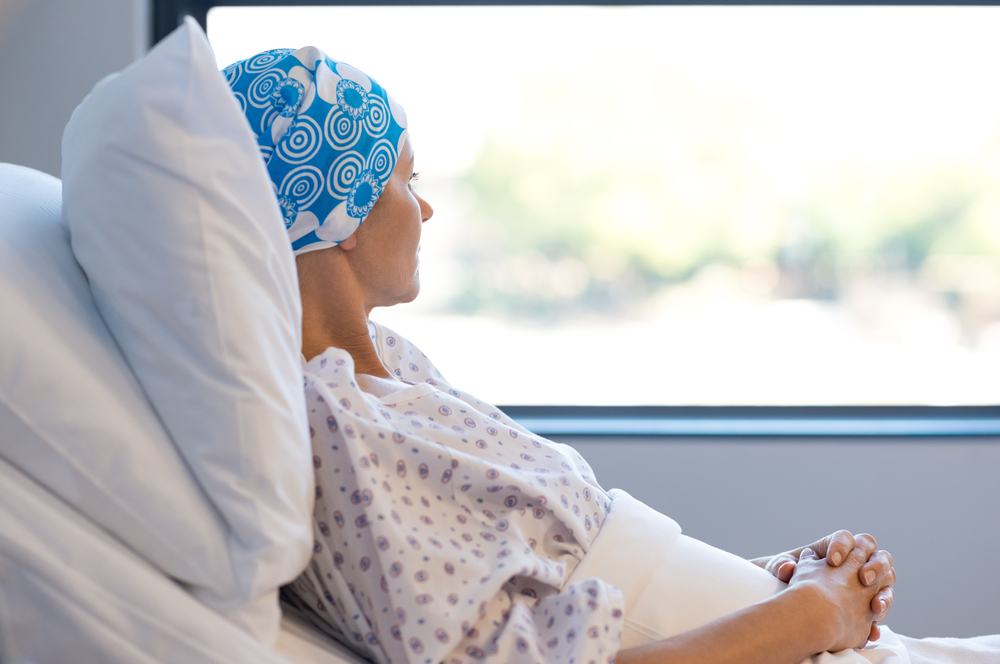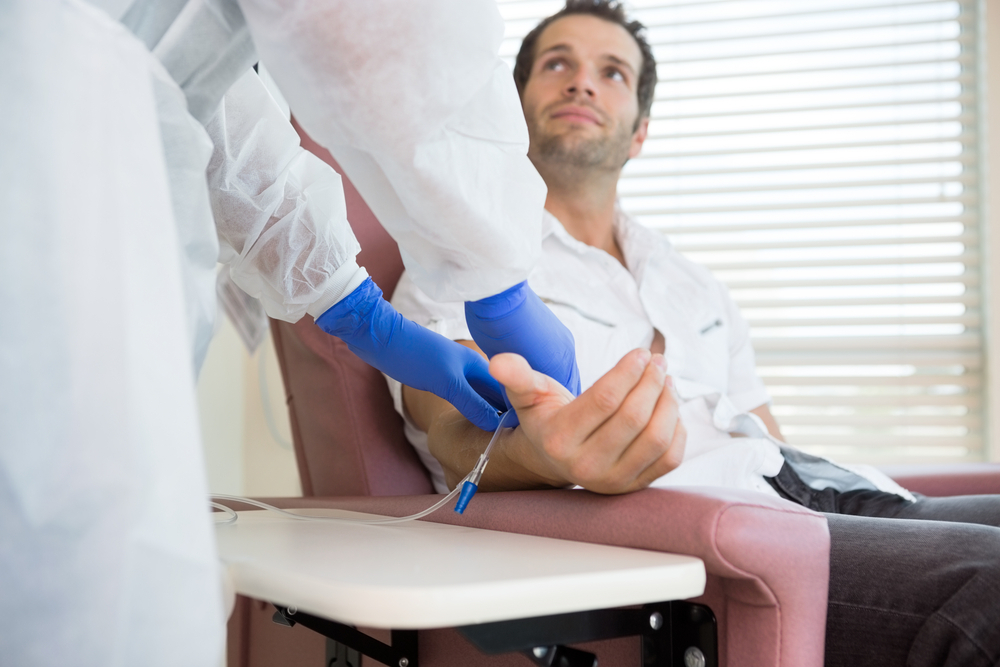

Chemotherapy (chemo) is an approved treatment for dealing with various types of cancer cases. In chemotherapy, specific drugs are used to destroy cancer cells and prevent them from growing or spreading to other parts, areas, and tissues of the body. Chemotherapy is effective in preventing cancer cells from growing, dividing, and forming more cells. Therefore, many doctors resort to it after choosing the method of treating the patient.
Chemotherapy is generally effective, but chemotherapy gives much better results when it comes to cells that are actively growing and dividing. Since cancer cells tend to grow and divide quickly, they grow and divide at a higher-than-average rate, so they are considered a good target for chemotherapy.
Some patients, while undergoing chemotherapy, lose their hair until they reach the point of complete baldness, and others vomit a lot or suffer from sudden and severe diarrhea. Certainly, these symptoms do not appear in everyone, but they appear in a wide segment of patients who are treated for cancer with chemotherapy, and these symptoms vary from person to person. To another, it depends on several factors, including the nature of the person, her health condition, the patient’s age, and the way his body and immune system receive chemotherapy, in addition to many secondary factors.
One of the most important reasons for the appearance of these symptoms when undergoing chemotherapy (hair loss, diarrhea, vomiting, etc.) is that chemotherapy cannot distinguish the difference between cancer cells and some normal cells, and thus chemotherapy directly affects these cells and prevents them from growing. Among these cells are those cells found in hair follicles or cells found in the lining of the digestive system. They tend to grow and divide faster than other cells in the body. Therefore, chemotherapy directly affects these cells and destroys them, thus causing hair loss, baldness, and many side effects. Others, such as vomiting and diarrhea, and in most cases these natural cells are able to repair the damage that caused them and destroyed them over time. As a result, these symptoms are often temporary as the patient is exposed to the effects of chemotherapy according to what the patient’s health condition requires, and thus once the chemotherapy ends. These side effects begin to disappear and things return to the way they were before starting chemotherapy.
Patients with cancer differ from each other according to each person’s medical condition and the rate of spread of the cancer, and therefore they differ in the time they will need to recover with chemotherapy. In Tadawi, your chemotherapy will be planned by the oncologist and the cancer specialist who supervises the drug treatments. Oncologists and cancer specialists work with other members of the healthcare team to plan and deliver treatments, so they can discuss the patient’s health condition and determine the best method for administering chemotherapy that is appropriate for the patient and his or her health condition.
There are several ways to give chemotherapy. Chemotherapy can be given every day, it can be every week or even every month. The appropriate method for giving the patient chemotherapy is determined based on his health condition in addition to the results of medical examinations and analyses. Chemotherapy drugs are often given at regular intervals, and these periods are called doses or cycles. As for the duration of chemotherapy and how long it will last, this is also determined by the specialist doctor supervising the treatment based on the patient’s health condition based on the results of medical examinations and analyses, and certainly based on the response. The patient’s body and health condition for chemotherapy. In any case, the healthcare team following up on the patient’s condition will inform him in detail about everything related to the stages of his treatment, including how long they expect chemotherapy to continue.
The oncologist and cancer doctor supervising the patient’s treatment will conduct periodic examinations of the patient, and based on the results of the examinations, he will determine the degree of the patient’s response to treatment. In specific cases, the specialist physician supervising chemotherapy may make changes to the treatment plan, meaning that he adjusts the dose or course or adjusts the interval time. Between doses or adjusting the method of administering drug doses. During the chemotherapy period, the doctor will tell you what you can eat and drink and what you should avoid during the chemotherapy period. It is very important for the patient to inform the doctor supervising his treatment of all the medications he is taking, including nutritional supplements, Vitamins, prescription medications, or herbal medicines.
There are more than 100 types of cancer that can affect humans.
Cancer is a group of diseases that involve abnormal growth of cells with the potential to spread to other parts of the human body.
According to a World Health Organization report: one-third of cancer deaths are due to five main behavioral and nutritional causes:
High body mass, low intake of fruits and vegetables, lack of physical activity, smoking, and alcohol abuse.
Radiotherapy or radiation cancer treatment is a type of approved cancer treatment, as radiotherapy relies on the use of intense energy beams to eliminate cancer cells. Radiation therapy often uses X-rays, but protons or other types of energy can also be used.
Radiation therapy eliminates cancer cells by destroying the genetic material that controls the growth and division of these cells, but the negative or problem of radiation therapy is that it does not differentiate between healthy cells and cancerous cells, so radiation therapy destroys healthy cells and cancerous cells alike, and this negative is common. Between him and chemotherapy.
Of course, the doctor supervising the patient’s treatment tries to have radiotherapy destroy the largest possible number of cancer cells with the smallest possible number of normal healthy cells, but the destruction of healthy cells cannot be avoided absolutely. In any case, the normal cells that will be exposed to harm, damage, or destruction can perform the operation. Repairs and reshapes in a rapid manner and thus compensates for the damage caused by radiotherapy.

When a cancer patient undergoes chemotherapy, chemotherapy destroys cancer cells through the use of specific drugs. These medications are taken through one of three methods, either intravenously, orally, or through the body cavity such as the abdominal cavity, pleura, and urinary bladder. Chemotherapy works effectively against cells that are actively growing and dividing, and since cancer cells are actively growing and dividing, Chemotherapy is a good treatment against cancer cells. However, one of the disadvantages of choosing chemotherapy to treat cancer is that it does not differentiate between cancer cells and healthy cells. It is a medicine that cannot be directed against cancer cells only. Chemotherapy is considered a chemical application that includes all parts, cells, and tissues of the body, and therefore the patient will see that the effect of chemotherapy will not be only on Cancer cells but will even spread to include many other cells. One of the most prominent symptoms that you will notice in the patient is that he will lose all the hair on his head, and even the hair of the eyebrows, eyelashes, beard, mustaches, and other parts of the body. The chemotherapy will destroy the hair follicle cells, and thus the hair will fall out and the patient will reach the stage of complete baldness, the good thing is that these symptoms disappear completely after the completion of chemotherapy, as the hair grows again and the patient’s appearance returns to what it was, but it will certainly take some time.
As we mentioned previously, since chemotherapy does not distinguish between cancer cells and some normal cells that grow rapidly, chemotherapy can affect these healthy cells. Therefore, the patient who undergoes chemotherapy will find that one of the most common side effects of chemotherapy is the patient’s hair loss, in addition to many Second symptoms including vomiting or severe diarrhea, as well as symptoms of weak immunity. The good thing is that these side effects tend to disappear upon completion of chemotherapy. Therefore, if the patient’s hair falls out while undergoing chemotherapy, upon completion of chemotherapy, the patient will have his hair back as it was before chemotherapy, but it will certainly take some time.
The patient’s health condition will be evaluated by the oncologist and the health care team, and the patient will receive all information regarding the treatment, such as the method of treatment, the expected duration, and all related details. Based on the patient’s body’s understanding of the approved treatment method, the oncologist supervising the patient’s care can make some procedures and changes. On the treatment plan.
First, all medical examinations and analyses will be performed, after which the specialist doctor will evaluate your health condition and determine the appropriate method for you to receive chemotherapy (intravenously, orally, inside the body) and the period between doses (a day, a week, a month). It is necessary to inform the doctor about all the medications that you are taking. Take them including supplements.
Radiation therapy for breast cancer uses high-energy X-rays, protons, or other particles instead of using medications. These rays do not cause any pain and cannot be seen. Radiation therapy can be relied upon to treat breast cancer in most of its stages, and one of its most prominent advantages is that it reduces the chances of recurrence. Breast cancer after surgery.
Radiation therapy is considered an essential option for treating prostate cancer, especially if the cancer is in its early stages and is limited to the prostate. A device called a linear accelerator is used that directs high-energy radiation beams to the cancer cells to kill them.
Because we at Tadawi combine medical experience and advanced technology. We have the best medical staff in Turkey and we deal with the most skilled doctors specializing in cancer and oncology in Turkey. Treatment at Tadawi is always carried out according to the best international safety standards and in rooms equipped with the latest devices and equipment.
Chemotherapy is the use of a specific type of medication to destroy cancer cells and prevent them from growing, dividing, and making more cells.
This depends on the patient's condition and the experience of the treating physician.
It is painful and there are painful side effects such as headaches and nausea.
Depending on the medical condition, treatment method, and nature of work, the treating physician will determine this for you.
Depending on the medical condition and treatment method, but in general, you must quit smoking, alcohol, and processed foods.
You can eat small meals and drink plenty of fluids, and the doctor supervising the treatment may prescribe medications that reduce nausea and vomiting.
Depending on the medical condition, the doctor supervising the treatment will determine this.
No, there is radiation therapy, surgery, bone marrow transplantation, hormonal therapy, and drug therapy.
Depending on the medical condition, treatment method, and nature of work, the treating physician will determine this for you.
Either intravenously, orally, or through the body cavity such as application into the abdominal cavity, pleura, and urinary bladder.
Please contact us and get more information about cancer chemotherapy in Turkey at Tadawi
You can now get a free consultation and learn all the details that interest you about your health condition
Register to subscribe to the newsletter